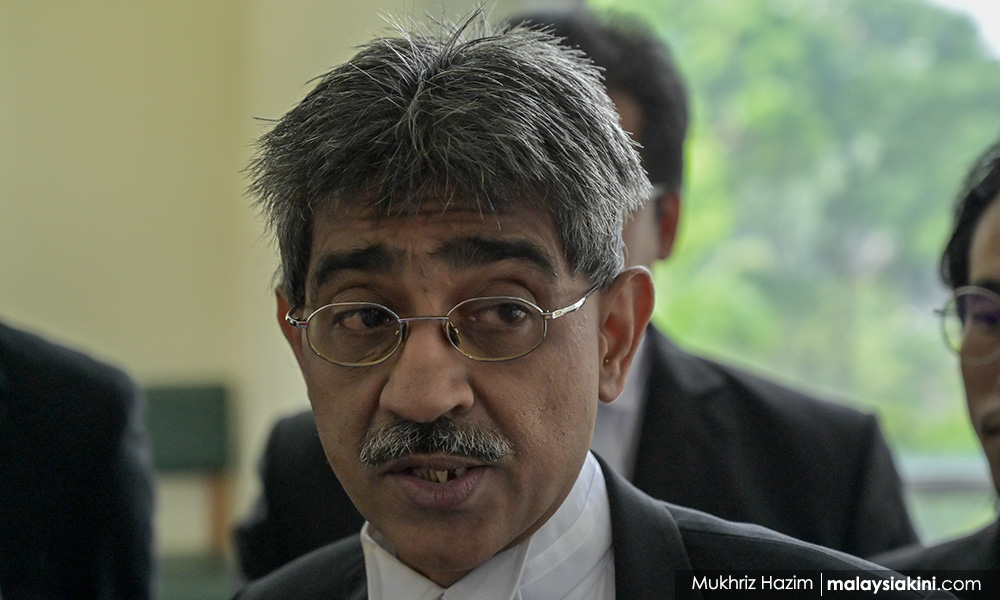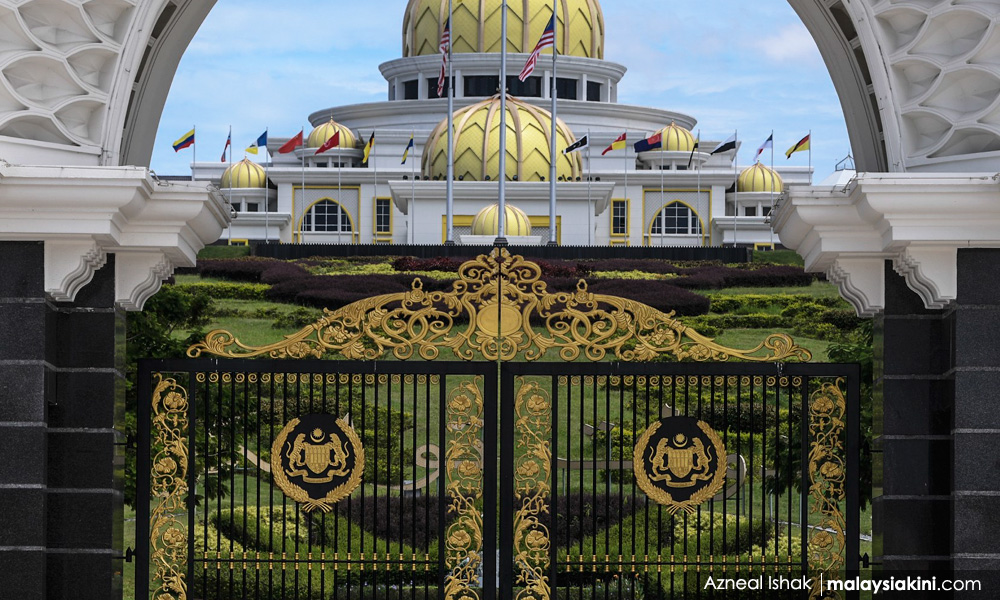
The Kuala Lumpur High Court today dismissed an application to strike out a legal challenge against the royal pardon granted to Anwar Ibrahim over his sodomy case.
Judge Akhtar Tahir made the ruling on the bid by the PKR president during open court proceedings this morning.
On Feb 26, lawyer Mohd Khairul Azam Abdul Aziz filed the suit to overturn the royal pardon granted to Anwar over his sodomy case.
On June 2, Anwar filed the striking-out application.
The court today also set three days from March 24 next year to hear submissions on the merits of the legal action.
When met after proceedings this morning, Khairul Azam’s lawyer Mohamed Haniff Khatri Abdulla reiterated that the legal action is not a challenge against the power of the Agong in relation to royal pardons.
Instead, the veteran lawyer said, the suit seeks for the court to hear over the issue of whether the royal power to pardon covers only sentencing over a crime or whether it also extends to conviction as well.

Haniff (photo) added that the other issue the suit seeks for a full court hearing is whether the Pardons Board’s was validly constituted when it advised the Agong over the issue of royal pardon over Anwar’s sodomy sentencing and conviction.
Lawyer J Leela appeared for Anwar in today’s matter.
Earlier during the proceedings, Akhtar dismissed the striking-out application on grounds that the suit does not involve a clear-cut case suitable for summary dismissal.
The judge said this is because there are several issues raised in the suit that needs to be fully ventilated via full hearing.
Akhtar said that among these issues are whether the Agong’s exercise of power to grant pardon is one that amounted to exercise of executive power under the Federal Constitution.
The judge noted that this is an important issue because, under normal circumstances, a situation such as a minister’s wrong exercise of executive power could be challenged in court.
The judge was referring to Article 39 of the Federal Constitution, which states that “the executive authority of the federation shall be vested in the Yang di-Pertuan Agong and exercisable, subject to the provisions of any federal law and of the Second Schedule, by him or by the cabinet or any minister authorised by the cabinet, but Parliament may by law confer executive functions on other persons”.
Akhtar said this ties to another related issue that needs to be ventilated in a full trial, namely whether wrong advice had been given by the Pardons Board to the Agong regarding the issue of Anwar’s pardon.
The judge said this is because per Article 40 of the Federal Constitution, the Agong’s exercise of power is subject to the advice given to him, such as by the Pardons Board in relation to the issue of royal pardon in criminal cases.
“The Pardons Board play an important role, the power to pardon is given subject to the advice by the board,” Akhtar said.

The judge noted that this ties back to the triable issue of whether the Pardons Board’s advice had been correctly given to the Agong.
Akhtar added that other issues that need to be fully heard by the court are whether the Agong’s pardon only covers commuting of sentencing or it could quash conviction in a criminal case.
After dismissing Anwar’s striking-out application, the court made no order to cost.
After fixing the hearing dates, the court also set Feb 18 next year for case management of the legal action.
It was reported that the lawsuit, filed at the Kuala Lumpur High Court on Feb 26, targets the advice given by the Pardons Board to the Agong, dated May 16, 2018.
On that date, Anwar was released from jail following the royal pardon concerning his sodomy case involving his former aide Mohd Saiful Bukhari Azlan. - Mkini


No comments:
Post a Comment
Note: Only a member of this blog may post a comment.